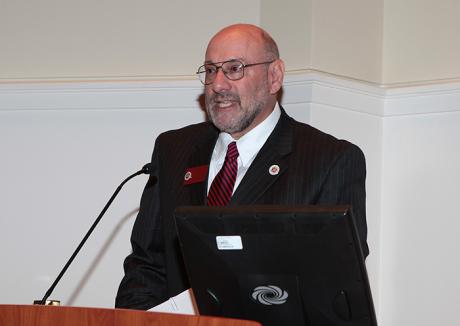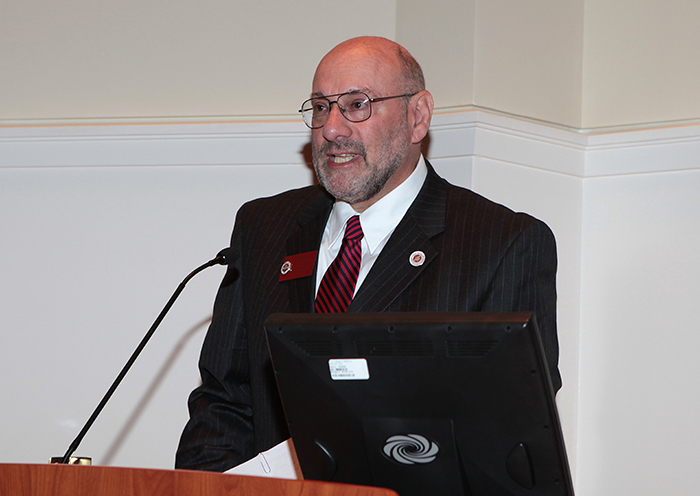Kapp receives grant to train physicians and attorneys


Working together for an older patient/client is often a strain for physicians and attorneys. According to Professor Marshall Kapp, this phenomenon is often talked about but has yet to be formally addressed. To help identify and address the behavioral impediments to these interprofessional relationships, Kapp received a grant from the Retirement Research Foundation to produce continuing education modules in Florida that are usable nationwide.
“It’s got to happen primarily where people get to know each other individually,” said Kapp, director of the FSU Center for Innovative Collaboration in Medicine and Law.
As a health-law expert, Kapp hopes to use the almost $40,000 grant to help educate current doctors and lawyers in how to better establish interprofessional collaboration and communication for successful older patient/client health-care outcomes — such as when someone’s decision-making capacity is questioned or a Medicare claim is denied. In creating continuing education modules for attorneys and physicians, Kapp hopes to lay the groundwork for better individual relationships.
“There is value to continuing education programs but only as an inroad to selling collaboration on an individual basis, which is what’s necessary to establish trust,” said Kapp. “Ideally that would be one of the outcomes of this project.”
Doctors and lawyers will be educated separately using two modules developed by Kapp, Assistant Professor Shenifa Taite and an advisory board. Associate Dean Greg Turner will then conduct follow-up research based on attendees’ survey responses.
“Doing two separate modules is a bow to the reality that we need to get them in the room to begin with,” said Kapp. “Then, hopefully, the next step will have them in the same room talking to each other.”
The continuing education courses will occur at the Florida Bar and the Florida Geriatrics Society.
Kapp hopes they will provide a first step for physicians and attorneys caring for older patients or clients collaboratively. He’s also familiar with the common barriers discussed about this kind of progress.
“The impediment to collaboration is more lack of etiquette than anything else — not being considerate of the other professional’s time and responsibilities,” said Kapp. “Etiquette, respect for the other person, fostering a more trusting relationship and the willingness to explain things in ways that your counterpart can understand – those are the big factors.”
Caring for an older patient/client in a more coordinated way also fits with the current overall direction of medical care.
“There’s a big push to coordinate medical care,” said Kapp. “Part of the thrust of this project is that coordinating care for an older person in a comprehensive way ought to include legal care, as well as nursing and rehabilitation and various medical specialties. This project is trying to go beyond the referral model to a real collaboration model. Hopefully the project will turn the free-floating anxiety into specific impediments that can be addressed with specific remedies.”
The private Retirement Research Foundation focuses on improving quality of life for elders nationwide. Its Responsive Grants program supports projects in advocacy, direct service, professional education and training, and research.
To learn more about the continuing education courses as information becomes available, please visit www.med.fsu.edu/medlaw or www.facebook.com/fsumedlaw.

